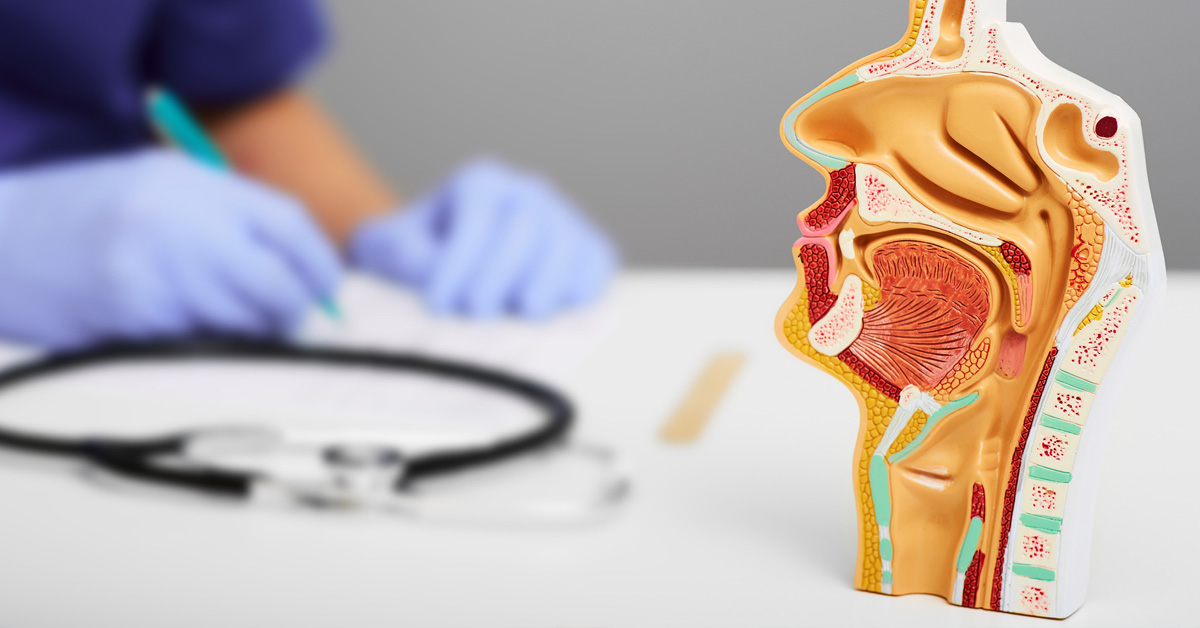ENT Surgical Care Explained: When Is It Recommended?
Wiki Article
Checking out the Field of Otolaryngology: What to Expect When You Seek Advice From an ENT
Otolaryngology, generally described as ENT, includes the diagnosis and therapy of ear, throat, and nose disorders. For those experiencing relevant concerns, seeking advice from an ENT expert can offer clearness and relief. Comprehending what to anticipate during such appointments is important for effective communication and treatment. This overview will certainly detail essential facets of the ENT experience, including usual reasons for gos to and the procedures associated with diagnosis and therapy.
Comprehending Otolaryngology: An Introduction
Otolaryngology, usually described as ENT (Nose, ear, and throat) medicine, is a specific branch of medicine that focuses on the diagnosis and therapy of problems influencing these critical locations of the body. This area includes a variety of conditions, consisting of those pertaining to hearing, balance, respiratory function, and speech. Otolaryngologists are trained to manage both surgical and medical therapies, utilizing sophisticated techniques and modern technologies. Their knowledge extends beyond standard disorders, dealing with concerns such as allergies, sinus infections, and hearing loss. In addition, they play a vital duty in the monitoring of head and neck cancers, giving detailed treatment tailored to specific client needs. Overall, otolaryngology continues to be crucial for keeping health and lifestyle in damaged people.Typical Factors to See an ENT Specialist
Lots of people seek the know-how of an ENT professional for a variety of reasons, showing the varied nature of problems that influence the throat, ear, and nose. Usual concerns consist of persistent sinus problems, which frequently causes relentless nasal blockage and face discomfort. Allergic reactions and their associated signs, such as itching and sneezing, also trigger check outs to these professionals (Hearing). Hearing loss, whether unexpected or gradual, is another considerable factor for consultation. Additionally, individuals may look for evaluation for throat disorders, consisting of relentless hoarseness or ingesting problems. Rest apnea, defined by disturbed breathing during sleep, is regularly attended to by ENT experts. Each of these conditions highlights the importance of specialized treatment in handling complex ENT-related health concerns
Planning for Your ENT Visit
When preparing for an ENT appointment, it is necessary to gather relevant details and take into consideration any kind of certain worries. Individuals need to assemble a detailed medical history, including previous ear, nose, or throat problems, surgeries, and present medicines. Recording signs-- such as seriousness, period, and frequency-- can supply important understandings for the ENT specialist. Furthermore, people ought to prepare a listing of inquiries they want to ask, ensuring that all worries are attended to throughout the go to. Bringing along any type of pertinent clinical records or test outcomes can further help the ENT in recognizing the patient's condition. Lastly, people should verify their visit information, consisting of day, time, and place, to reduce any kind of final confusion. Proper preparation can boost the effectiveness of the assessment and cause much better results.What to Anticipate Throughout the Consultation
As the assessment begins, the client can expect to engage in an extensive conversation with the ENT expert regarding their signs and medical history. The specialist will certainly ask about the period, regularity, and extent of signs such as hearing loss, nasal congestion, or sore throat. In addition, the person's previous clinical conditions, medications, and any appropriate household history will certainly be assessed, helping the expert in forming a complete understanding of the individual's wellness. The ENT may likewise ask regarding way of living elements, such as exposure to toxic irritants or allergens. This open discussion establishes a structure for the examination, making sure that the patient's problems are attended to and setting the phase for any essential analyses or suggestions for treatment.
Diagnostic Tests and Procedures in Otolaryngology
A variety of diagnostic tests and treatments are crucial in otolaryngology to accurately review and diagnose problems impacting the ear, nose, and throat. Common examinations include audiometry, which measures hearing function, and tympanometry, examining center ear pressure. Nasal endoscopy enables visualization of the nasal flows and sinuses, while laryngoscopy examines the throat and vocal cables. Imaging strategies, such as CT scans and MRIs, supply detailed views of head and neck frameworks. Allergy screening might likewise be performed to determine triggers for sinus or respiratory concerns. These diagnostic devices make it possible click for more for ENT professionals to establish a comprehensive understanding of clients' problems, guaranteeing tailored and effective monitoring strategies. Correct diagnosis is necessary for effective therapy end results in otolaryngology.Therapy Alternatives Offered by ENT Specialists
ENT specialists use a selection of therapy options customized to deal with particular conditions impacting the nose, throat, and ear. These treatments range from conventional techniques, such as drug and way of living adjustments, to even more intrusive procedures. As an example, allergies may be taken care of with antihistamines or immunotherapy, while chronic sinusitis might require nasal corticosteroids or sinus surgical treatment. For hearing loss, ENT experts typically advise hearing help or medical treatments like cochlear implants. In instances of throat conditions, options can include speech therapy or surgeries to get rid of blockages. Furthermore, they may offer guidance for managing rest apnea, including making use of CPAP tools or surgical treatments. On the whole, the goal is to improve people' lifestyle with customized care and reliable treatment methods.When to Look For Follow-Up Care With an ENT
Acknowledging when to look for follow-up treatment with an ENT specialist is essential for handling ongoing signs or issues connected to nose, ear, and throat problems. Individuals must think about arranging a follow-up visit if signs and symptoms persist regardless of preliminary treatment, such as chronic ear pain, nasal congestion, or throat discomfort. Modifications in hearing, equilibrium concerns, or uncommon nasal discharge may also call for more analysis. In addition, if a client experiences side impacts from prescribed drugs or has gone through a surgery, follow-up care is very important to monitor recuperation and attend to any kind of concerns. Timely consultations can guarantee reliable management of conditions, protect against potential issues, and provide satisfaction relating to one's health. Seeking follow-up treatment advertises proactive health and wellness monitoring in otolaryngology.Often Asked Questions

What Credentials Should I Look for in an ENT Expert?
When seeking an ENT expert, one need to try to find board certification, relevant experience, and strong patient evaluations. In addition, reliable communication skills and a caring method can considerably boost the total treatment experience.How Do I Pick the Right ENT for My Needs?
Picking the ideal ENT professional includes examining their certifications, experience, and person testimonials (Otolaryngology). It is important to consider their communication style and approach to treatment, ensuring they straighten with the individual's particular wellness demands and preferencesAre There Any Type Of Dangers Connected With ENT Procedures?
The threats linked with ENT treatments might include infection, the voice coach bleeding, anesthetic complications, and prospective damages to bordering structures. People must talk about these risks with their physician to recognize private worries and guarantee notified choices.How Can I Handle Stress And Anxiety Prior To My ENT Consultation?
To handle anxiety before a visit, people can practice deep breathing workouts, visualize positive outcomes, prepare inquiries ahead of time, and look for assistance from pals or family, cultivating a sense of reassurance and calmness.What Should I Do if I Experience Adverse Effects From Treatment?
The person should promptly report them to their health care supplier if side effects from treatment take place. Modifications to therapy or extra treatments might be required to guarantee safety and security and performance in handling their condition - ENT. As the appointment begins, the individual can anticipate to engage in a comprehensive conversation with the ENT expert about their symptoms and medical history. These diagnostic tools allow ENT specialists to dan gordon ent establish a complete understanding of people' problems, guaranteeing customized and effective administration plans. ENT specialists use a selection of treatment alternatives customized to attend to details problems affecting the nose, throat, and ear. When looking for an ENT specialist, one must look for board certification, relevant experience, and strong client testimonials. Choosing the ideal ENT expert includes examining their qualifications, experience, and person evaluationsReport this wiki page